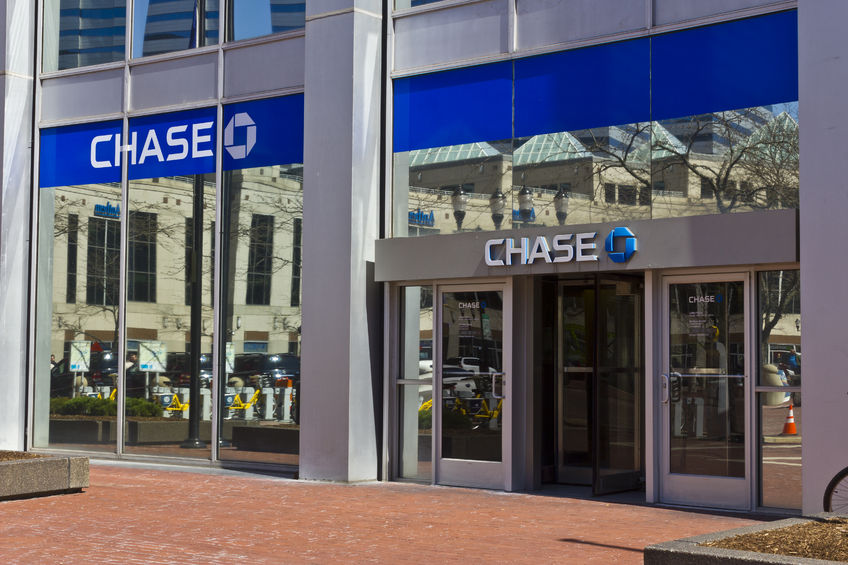I receive compensation for content and many links on this blog. Citibank is an advertising partner of this site, as is American Express, Chase, Barclays and Capital One. Any opinions expressed in this post are my own, and have not been reviewed, approved, or endorsed by my advertising partners. I do not write about all credit cards that are available -- instead focusing on miles, points, and cash back (and currencies that can be converted into the same). Terms apply to the offers and benefits listed on this page.
In late August I wrote that Chase was about to introduce their new Sapphire Banking product — but not to sign up right away because a bonus would be on its way that you should wait for.
The bonus debuted in-branch a couple of weeks ago. Now it’s available online: 60,000 Ultimate Rewards points for customers who bring in $75,000 in qualifying deposits and investments and open or upgrade to a Sapphire Banking account.
Chase has taken the Sapphire branding and put it onto a perk-rich checking account designed for new affluent customers who do not yet meet the target for Chase Private Client banking.

Here’s to open one with this bonus. (HT: Doctor of Credit)
- You need a Sapphire or Freedom credit card to be eligible (Chase Sapphire Preferred card)
- You need to hit the minimum balance within 45 days and maintain it for 90 days
Customers who maintain $75,000 in qualifying deposits or investments receive:
- No fees on ATMs worldwide, including refunds on fees charged by non-Chase ATM owners
- No fees on everyday banking, including foreign exchange fees, outgoing wire transfers and stop payments
- Higher ATM withdrawal limits
- Commission-free stock and ETF trades (new You Invest platform)
- “Access to Sapphire lounges at concerts, sports and special events, early ticket sales and premium seats”
- “Advice from Chase’s specialists in banking, home lending and small business
Accounts that do not maintain a $75,000 average balance incur a $25 monthly fee. It’s not going to make sense to leave $75,000 or more sitting around in a low yielding account in order to get these benefits but it could make sense to consolidate investments in a Chase account in order to build this relationship.

Copyright: jetcityimage / 123RF Stock Photo
Chase is explicit, “this offer is stackable.” For instance you can sign up for a Chase Sapphire Preferred Card and earn a 50,000 point bonus (after $4000 spend within 3 months, $0 annual fee the first year then $95) and those points transfer to airline miles and hotel points — any other Chase points can be moved into that account and transferred as well.
Then in addition to the 60,000 points for Chase Sapphire Banking you can earn their current bonus of up to 75,000 points for a new mortgage (last year there was a 100,000 point offer stackable with a $595 credit). Incentivizing mortgages with points makes Chase twice as likely to get a mortgage from cardmembers..
Bonus points from the checking account offer may be tax-reportable. Existing Chase Sapphire Banking and Chase Private Client customers are ineligible. And you can only earn one checking or investment account bonus once every 12 months.


Is there any fee for canceling after the 90 days and points have been deposited?
Can you open an IRA CD for the 60000 points.
The question becomes what 1099 value is Chase going to assign to UR points? Most people who have $75K in liquid assets are going to be in 25% or higher federal tax bracket plus possible state taxes.
Gary, You state: It’s not going to make sense to leave $75,000 or more sitting around in a low yielding account in order to get these benefits but it could make sense to consolidate investments in a Chase account in order to build this relationship.
In fact, it does make sense, even if you leave the $75,000 idle in the account for 90 days. I’ve explained it here: https://www.bestcashcow.com/chase-unveils-sapphire-banking-it-is-worth-a-look-for-those-with-75000.html
lol…error occurred hitting the signup link
“And you can only earn one checking or investment account bonus once every 12 months.” I got the oft-repeated $300 checking account bonus in April. Does that disqualify me from the Sapphire checking account bonus until next April? Or were you trying to say you can only get one Sapphire checking account bonus per year (in which case I’d be fine to go ahead now)?
If it’s taxable then really makes no sense IMO.
I can’t get too excited about “upgrading” my currently fee-free checking account to a $25/month checking account with the measly perks they are offering, or parking $75000 in any Chase savings product. If they had a cheap brokerage, I might play. “Where’s the beef?”
@SST Their attached brokerage is….free.
@Chris, I read on another blog that if the money was withdrawn before 6 months Chase would claw the money back.
I apologize if this is a dumb question, but could somebody translate this into ordinary English: “Maintain at least a $75,000 balance for at least 90 days from the date of funding, irrespective of any losses or gains due to trading or market fluctuation”
So does that mean “If the value dips below $75,000 due to market fluctuation you are screwed,” or “As long as you don’t withdraw funds, market fluctuations are no problem”? It seems to me the term “irrespective of” is either technical or ambiguous and I’d like clarification.